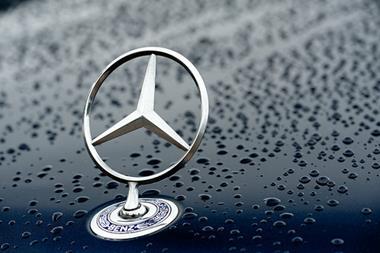As more businesses are being hit by product recalls, insurers have made cover easier and cheaper - even providing short-term specialist consultants for smaller companies that don’t have a large public relations budget.
Many middle-market companies insure against the risk of their products being defective but fail to consider recall insurance, despite the considerable financial and reputational costs of recalls.
With tighter legal requirements, more European companies than ever are notifying the authorities of potentially dangerous products. Inevitably, the number of product recalls required is increasing.
Don’t underestimate the potential costs of a recall. These can include:
- tracing where the affected products might be, for example, in your warehouses, in your customers’ warehouses, on the shelves or with the end customer;
- the cost of getting products back;
- advertising expenses;
- testing product samples and possibly external laboratory fees;
- repairing products where appropriate, or disposing of products where not;
- business interruption while production sites are closed for investigation;
- possible loss of business from disaffected customers; and
- management time spent on dealing with the crisis.
Avoiding the likelihood of a recall is particularly difficult for mid-sized companies. The business may not have a lot of resources to invest in risk management and quality assurance. At the same time, in a bid to reduce costs, it may well be outsourcing goods or components from companies in developing countries whose standards are lower than those that would be applied to in-house production.
China is the single greatest source of notified potentially dangerous products. According to law firm Reynolds Porter Chamberlain, UK recalls of goods made in China represented as much as 62% of all consumer recalls last year. The firm says that the comparatively low production standards of some Chinese goods entering the UK market are a major trigger of health and safety alerts. Partner Stuart White adds: “This is a major issue for UK or European companies, as they are increasingly dependent on production in China. A higher percentage of consumer goods from China means more companies will have to undertake expensive recalls.”
Specialists can help
While you will have insured product liability – the risk that your product may cause third-party property damage or injury – you may not have considered recall insurance. At one time, recall insurance was both comparatively expensive and not widely available. Now, product recalls have become more common and businesses more aware of the need to protect themselves.
And a wider spread of risk, with more insurers prepared to provide this cover, has brought premiums down. Some insurers also cover the cost of specialist consultants to help companies avoid long-term reputation damage. A product recall is one of the few situations where you have to publicise your company’s shortcoming. But you should institute the recall as quickly as possible.
Delaying could result in customer claims, increase costs and reputational damage. Yet, however quickly you act, you must be prepared for some brand damage and a possible drop in market share, which is where specialist consultants come in.
Be prepared to close a production line while you investigate the causes of the recall. If you have planned well for business interruption, this may not be a problem, as you may have another facility to switch to. If you don’t have an alternative immediately available, you won’t be able to meet ongoing delivery commitments and you’re likely to lose business as a result.




















No comments yet